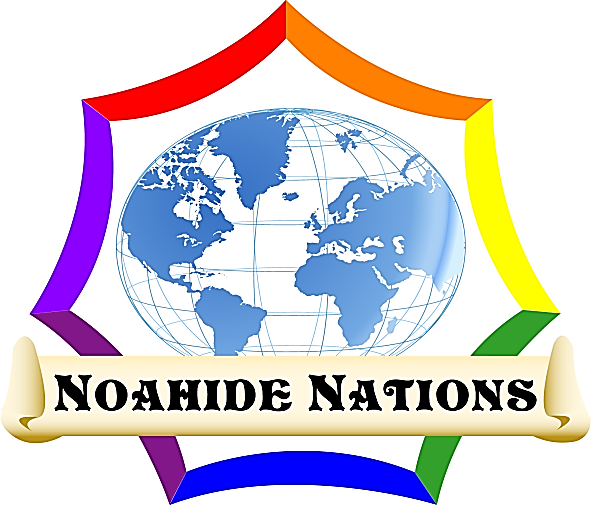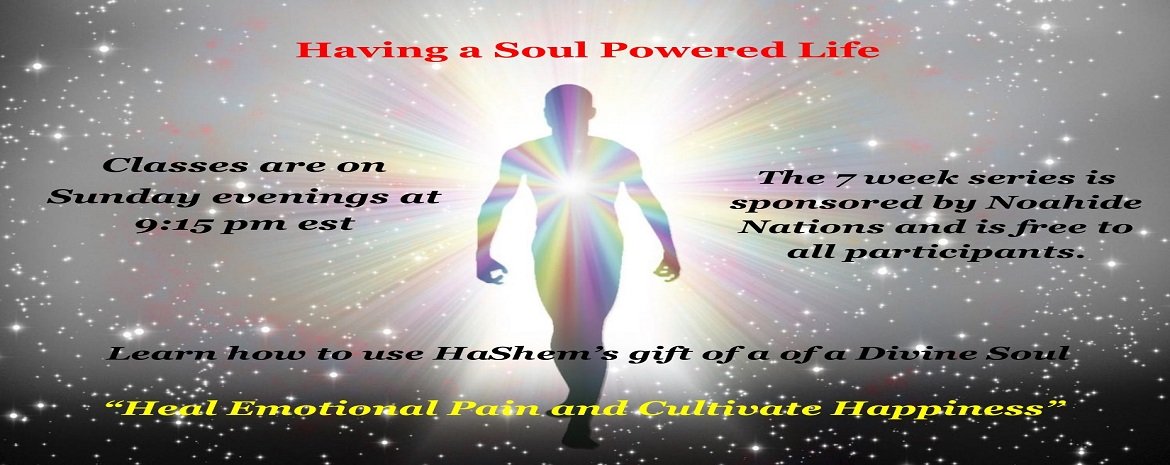
What is Good in Elokim's Eyes
- Category: Noahide Laws
- Hits: 4417

Idolatry: Article No. 3
IDOLATRY-3: What is Good in ELoKiM’s Eyes?
Know your CREATOR, know yourself and know the difference
1: Daily Judgment
We are learning about the IDOLATRY Commandment, which PROHIBITS the worshipping of idols; as the second of the Ten Commandments says: “Thou shall have no other gods over my face…” etc. It is a NEGATIVE Commandment, yet there is a POSITIVE aspect of it: The obligation to know whom should we worship. For that, G-d started the Ten Commandments (which are relevant to Noahides as well as to Israel) by saying “I Am YHVH, your ELoHiM, Who took you out of Egypt.” Here the Speaker (G-d) presents Himself by a series of titles and names which we are OBLIGATED to know and understand.
Hence we stared our journey by searching for the meaning of ELoKiM. As it turns out, the Torah starts by presenting Him in the first verse of Genesis that says: “At the Beginning, ELoHiM created the heavens and the Earth.” The verse does not say G-d but rather ELoKiM, which means JUDGE. In fact, the entire first Chapter of Genesis defines ELoHiM’s deeds. He is both the CREATOR and the JUDGE. At the end of Chapter one the Torah introduces another Attribute (of the infinite, nameless CREATOR) named YHVH, the Merciful One.
Last class we learned the ‘features’ of ELoKiM. We derive them by observing Nature, and by learning the Torah text. Then we learned about Him from the second verse which says that ELoHiM’s Sspirit (Wind) was hovering over the waters.“ The verse means, we’ve said, that His Throne of Justice is hovering over the water, and that His justice penetrates everything lile water, and is even to everyone like water’s surface. He executes His punishments by Water, like in Noah’s Flood.
Toda y we’ll follow the text and ask: What is GOOD in ELoKiM eyes? The question arises because at the end of almost every Day of CREATION, apart from Day two, the verse says that
“ELoKiM saw that it is GOOD, and there was an evening and there was a morning, One Day” (or third Day, fourth Day and so on)
Thus at the end of each Day, ELoKiM passed a judgment on the passing Day that He had just finished to see whether or not it was GOOD. Hence we ask, what constitutes GOOD in ELoKiM’s eyes? The question is important since we too are judged by Him.
2: Several options of what is GOOD in ELoKiM’s eyes
The commentaries offer several explanations for the term GOOD. They are all valid. Like a diamond whose beauty depends on the different slanted surfaces that sends sparkles all over, so is the Torah’s verse. You can’t define the Name ELoHiM by just one aspect or one angle. You need ‘seventy’ faces to explain each facet of the CREATOR. So here are seven such explanations of what constitute ‘GOOD’ in ELoHiM’s eyes:
1. ELoKiM was ‘pleased.’
The term ‘GOOD’ can simply mean that ELoKiM was ‘feeling good,’ that He was pleased with His work. In fact, Kabala says that the most primordial reason for CREATION existence is that the CREATOR wished to Feel GOOD (nachat ruach.) Man’s tasks, therefore, is to make Him feel GOOD about us.
2: GOOD means COMPLIED with His Law
Another explanation of the term GOOD relates to ELoKiM as a JUDGE. He deems a Day as GOOD, if it has complied with His Natural Laws. It infers that any item which has not complied were deemed NOT GOOD and eliminated at the end of the Day.
For instance: When creating the Trees, ELoKiM said: “Let the land bring forth grass, herb yielding seed, and fruit trees yielding fruits.” The Trees, however, developed a hard ‘skin,’ kelipah, despite His order to bring forth just fruits. ELoKiM judged the Trees and decided to allow the ‘skin’ to survive. The term kelipa has become a metaphor for anything that has survived despite its rebellion against ELoHiM’s wish. We harbor a kelipa in our soul, which is our ‘bad inclination’ that drives us to disobey Him and violate His Commandments.
3: GOOD is VIALBE, ENDURING
The term “GOOD” also means ‘viable’, enduring, strong.
For instance, when the daughter of Pharaoh first saw Moses floating over the River Nile, she saw that the baby was ‘good.’ It means the baby was healthy, viable, and would survive. (There are other explanations for Moses as ‘good.’)
4. GOOD means ‘strong’
ELoKiM is perceived here as a Builder of a Six Floors Building, the Six Days of CREATION. At the end of each Day, the Builder checks the last Floor whether or not it is strong to carry another Floor on top. He checks the poles, and ceiling, the walls, and decides whether or not it is GOOD, solid, strong. If the Floor is not GOOD, he would eliminate it and start it all over again.
This explains why ELoKiM passed a judgment each Day (apart from the second) at the junction between the passing Day and the new Day. At that moment a judgment was made whether to allow the items created to enter the next Day.
Thus each creature, small or big, has a task: to support the creatures of the next Day. The Vegetation of the Third Day was GOOD because they served and supported the fish, birds and cattle born later. The Cattle are GOOD since they support the BEASTS, and so on.
This applies to Man too. At the end of our Sixth Day we will be judged whether or not we are ready to enter the next, Seventh Day; the Eternal Sabbath. If we are NOT GOOD in ELoKIM’s eyes, we would be eliminated as many other creatures before us.
5: GOOD means that it fits His Plan
‘GOOD’ also means ‘fit.’ ELoKiM, the Builder, finds the passing Day to be GOOD if it fits His Master Plan for the entire Building. CREATION therefore did not happen at random, but rather according to a Plan.
6: ‘GOOD’ means ‘beautiful.’
“GOOD” also means “good to the eye,” or beautiful. Here lies the notion that the CREATOR is a JUDGE, BUILDER, KING FATEHR and an Artist. This last notion of the CREATOR as an artist has brought Abraham to recognize the CREATOR, as we’ll learn.
3: Adam has to be VERY GOOD
Let’s note that with Adam, ELoHiM raised his yardstick by which He measures thing and Hew would not be satisfied until Adam is deemed VERY GOOD. This comes out of the verses. At the end of our Day, the Sixth Day, it says that “And ELoKiM saw everything that He has done and behold, it was Very GOOD.” For us, being GOOD is not good enough. We must excel and be VERY GOOD, and please Him a lot. Wahht exactly does it means? We’ll learn in due course.
Having discussed the term ‘GOOD’ in His eyes, we follow the text and ask: What are His deeds? Only by knowing this, we would understand Him better.
-----------------------------------------------------------------------------------------
This article was orignally posted on http://www.noahidesevencommandments.com/default.asp
If you would like to listen Rabbi Zvi Aviner's live class, and see other available classes, click here
To listen to his recorded classes, see them in our store here
Opinions expressed in this article are not necessarily those of Noahide Nations


 French (FR)
French (FR)  English (UK)
English (UK) 




